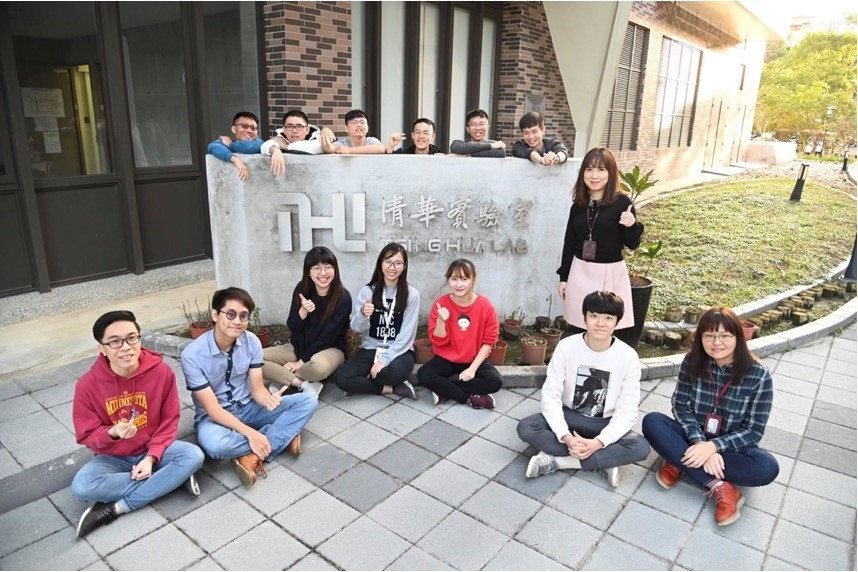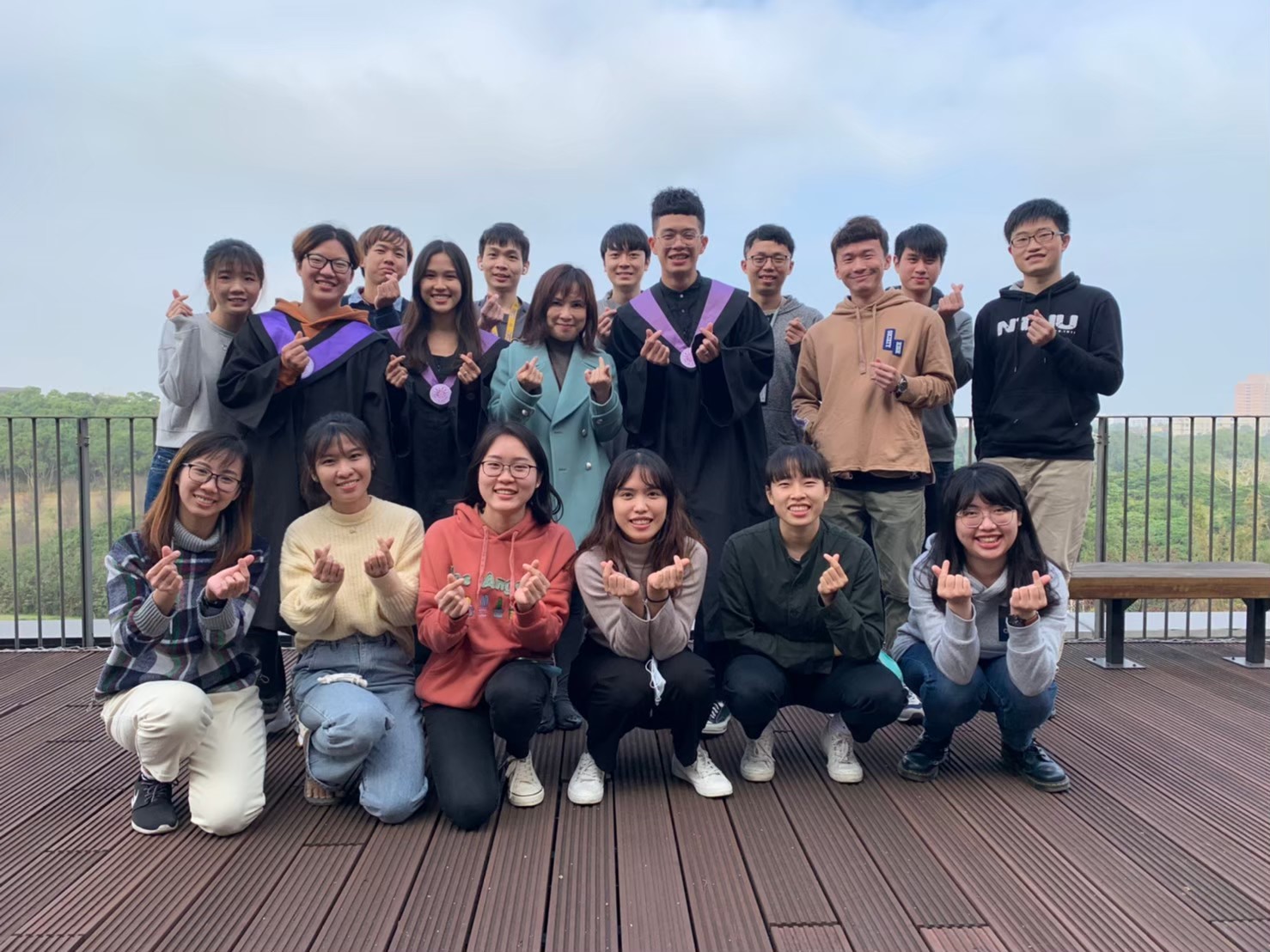CRS Labs Around the World: The Yunching Chen Lab at National Tsing-Hua University
Dr. Yunching (Becky) Chen has received her Ph.D. degree in Pharmaceutical Sciences from the University of North Carolina at Chapel Hill in May 2010, under the supervision of Dr. Leaf Huang. After completing postdoctoral training at the Department of Radiation Oncology at Harvard Medical School and Massachusetts General Hospital, where she worked with Drs. Rakesh Jain and Dan Duda, she discovered the important role of tumor stroma in immunosuppression, drug resistance, and cancer cell survival and metastasis. In 2013, Dr. Chen joined the faculty of National Tsing Hua University as a tenure-track Assistant Professor and rose through the ranks to Full Professor in 2020. She is currently the Chair of the Institute of Biomedical Engineering at National Tsing-Hua University. Her research focuses on developing innovative and potent formulations for administering nucleic acid and protein-based therapies, chemotherapy, and immunotherapeutic agents aimed at treating cancer and inflammatory diseases, including renal fibrosis and liver cirrhosis. Her work has been widely recognized and published in prestigious journals such as Journal of Controlled Release, Advanced Drug Delivery Reviews, Nature Nanotechnology, Nature Protocols, Advanced Materials, Advanced Functional Materials, ACS Nano, Gut, and Hepatology. Dr. Chen is also the Chair of the International Chapter Committee of the Controlled Release Society and an Associate Editor of Journal of Controlled Release.
The Yunching Chen Lab at National Tsing-Hua University focuses on the intersection of tumor biology and advanced drug delivery systems. Driven by the challenge of overcoming drug resistance and immunosuppression in cancer treatment, Dr. Chen’s research aims to develop innovative nanotechnology-based strategies that specifically target the tumor microenvironment. Over the past decade, the lab has pioneered several cutting-edge approaches, including CXCR4-targeted anti-cancer therapies, cancer gene therapy, nitric oxide delivery systems, and immunotherapy. These breakthroughs have demonstrated significant efficacy in preclinical models of challenging cancers such as hepatocellular carcinoma (HCC), pancreatic ductal adenocarcinoma (PDAC) and glioblastoma multiforme (GBM), paving the way for new, comprehensive, and safe treatment strategies.
One of the major contributions from Dr. Chen’s lab includes the development of CXCR4-targeted therapies that mitigate the tumor-supportive microenvironment induced by conventional treatments. Additionally, the lab has made strides in cancer gene therapy by creating tumor-selective gene carriers that deliver therapeutic nucleic acids directly into tumors, enhancing the efficacy of both conventional and immunotherapeutic approaches. For instance, their innovative delivery systems have shown to effectively reprogram the tumor microenvironment, enhance drug penetration, and activate immune responses against tumor cells. These efforts not only address primary tumor growth but also significantly inhibit metastasis, offering a holistic approach to cancer therapy.
The lab's advancements extend to the delivery of nitric oxide (NO) to normalize tumor vasculature and remodel the immunosuppressive tumor microenvironment, thereby boosting the efficacy of chemotherapeutics and immunotherapies. This work has broad implications, including applications in treating fibrotic diseases, where NO delivery systems have shown promise in reducing fibrosis and enhancing therapeutic delivery. Dr. Chen’s leadership in the field is further evidenced by her roles as Associate Editor for the Journal of Controlled Release and Chair of the International Chapter Committee of the Controlled Release Society. Through international collaborations and participation in prestigious conferences, the Yunching Chen Lab continues to push the boundaries of drug delivery and cancer treatment, contributing significantly to both scientific understanding and practical therapeutic advancements.


Relevant references:
1. A chemoimmunotherapy nanogel enables efficient delivery of interleukin-2 and induction of immunogenic cell death for effective cancer therapy. Advanced Functional Materials, 34(1), 2303033. (2024)
2. Delivery of Nitric Oxide with a pH-Responsive Nanocarrier for the Treatment of Renal Fibrosis. Journal of Controlled Release 354, 417-428. (2023)
3. Reversal of pancreatic desmoplasia by a tumor stroma-targeted nitric oxide nanogel overcomes TRAIL resistance in pancreatic tumors. Gut, 71(9), 1843-1855. (2022)
4. CXCR4-targeted nitric oxide nanoparticles deliver PD-L1 siRNA for immunotherapy against glioblastoma. Journal of Controlled Release, 352, 920-930. (2022)
5. A highly selective and potent CXCR4 antagonist for hepatocellular carcinoma treatment. PNAS, 118(13), e2015433118. (2021)
6. Highly efficient and tumor-selective nanoparticles for dual-targeted immunogene therapy against cancer. Science Advances, 6(3), eaax5032. (2020)
7. Delivery of nitric oxide with a nanocarrier promotes tumour vessel normalization and potentiates anti-cancer therapies. Nature Nanotechnology, 14, 1160–1169. (2019)
8. A multifunctional nanocarrier for efficient TRAIL-based gene therapy against hepatocellular carcinoma with desmoplasia. Hepatology, 67(3), 899-913. (2018)

